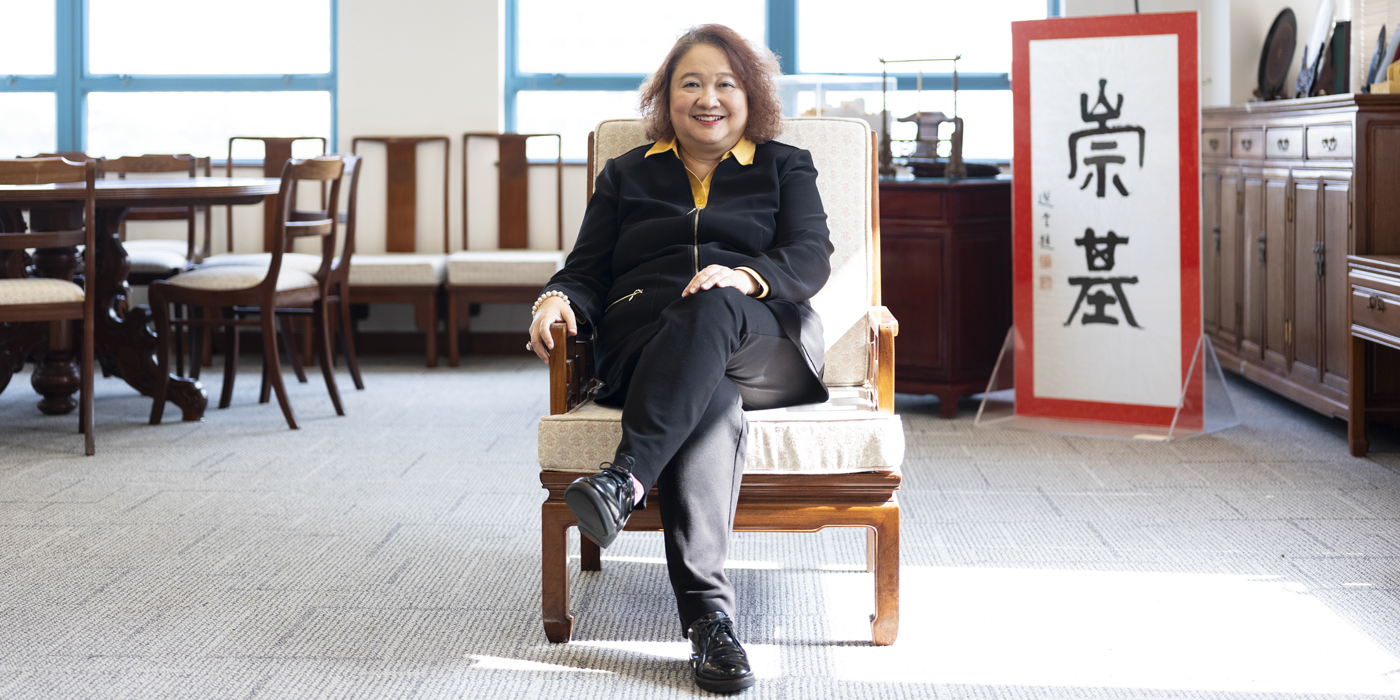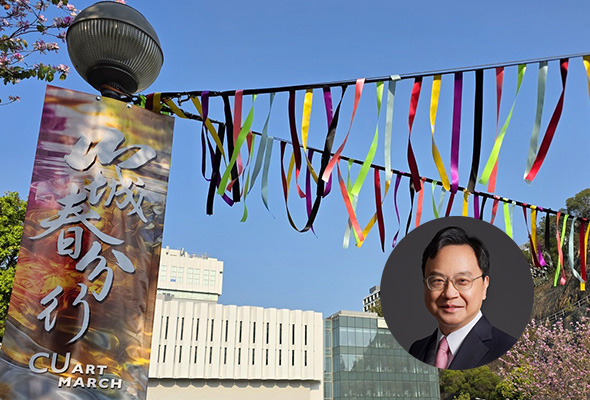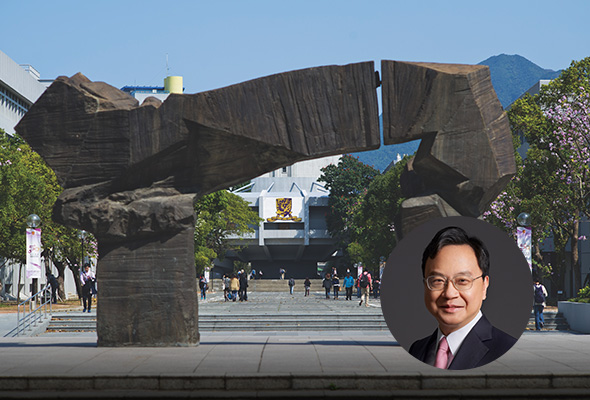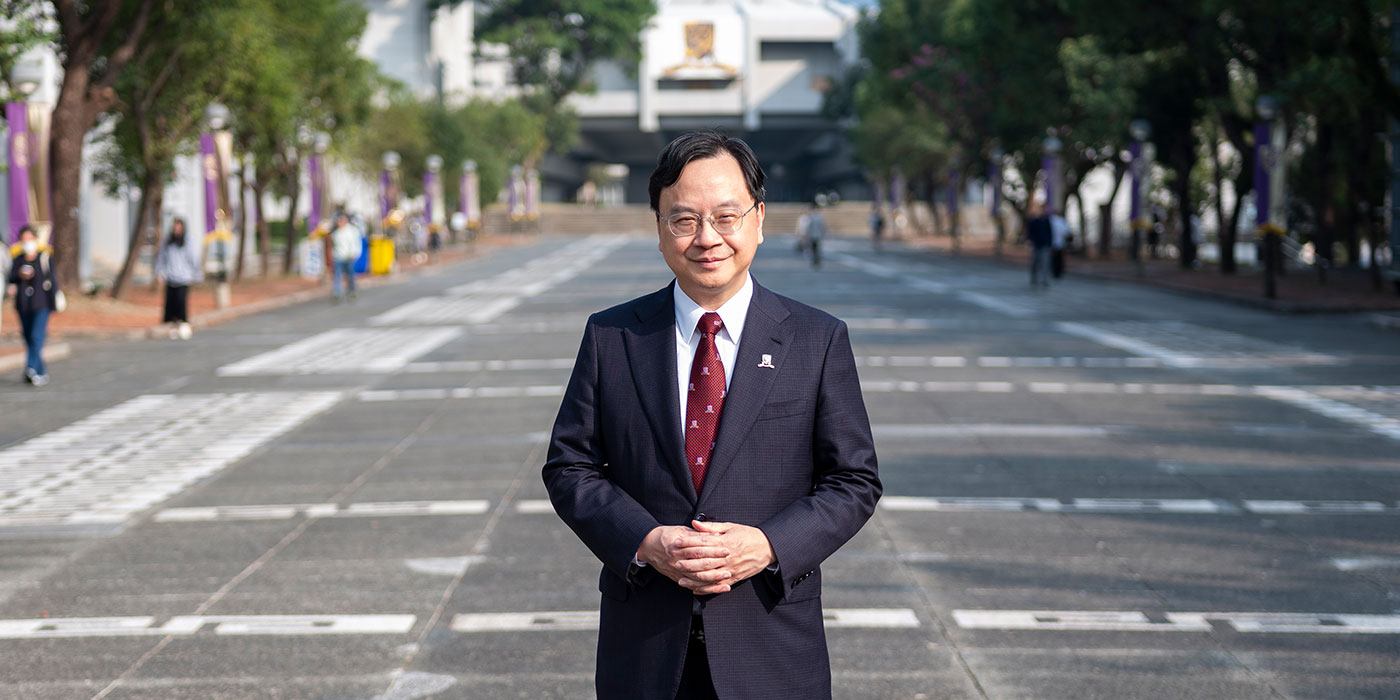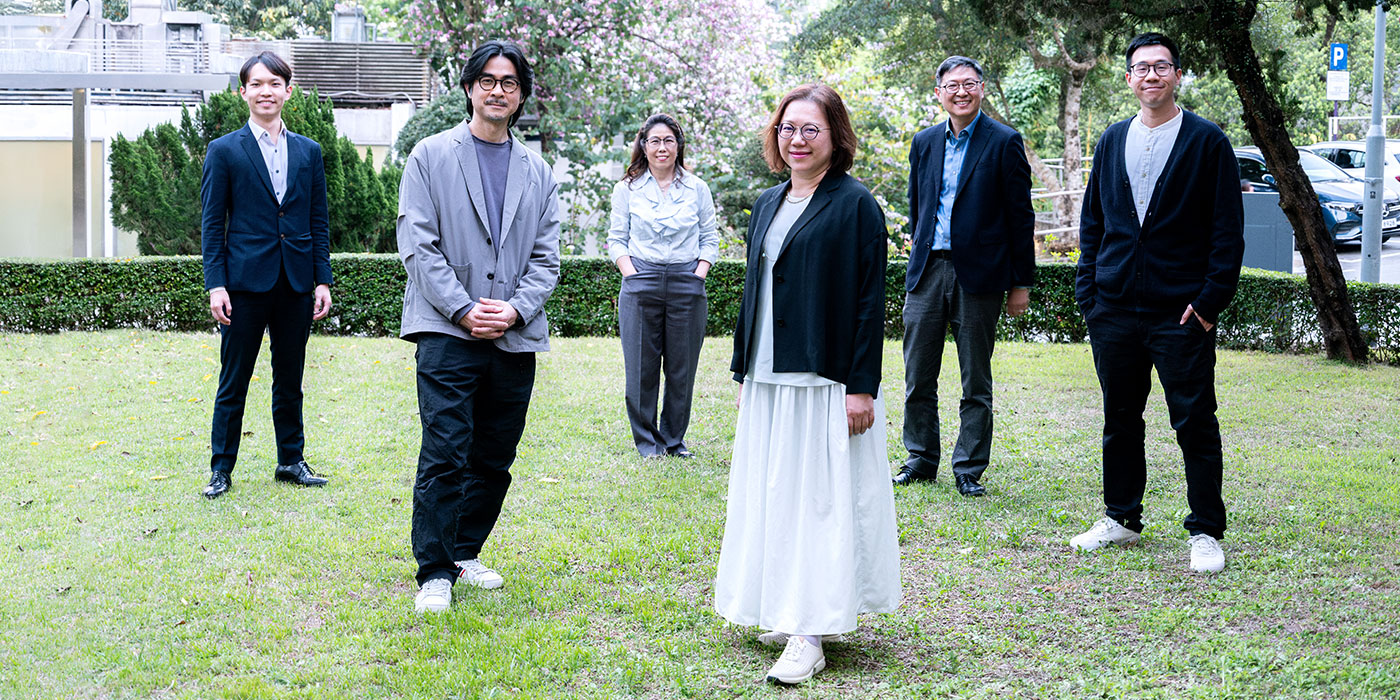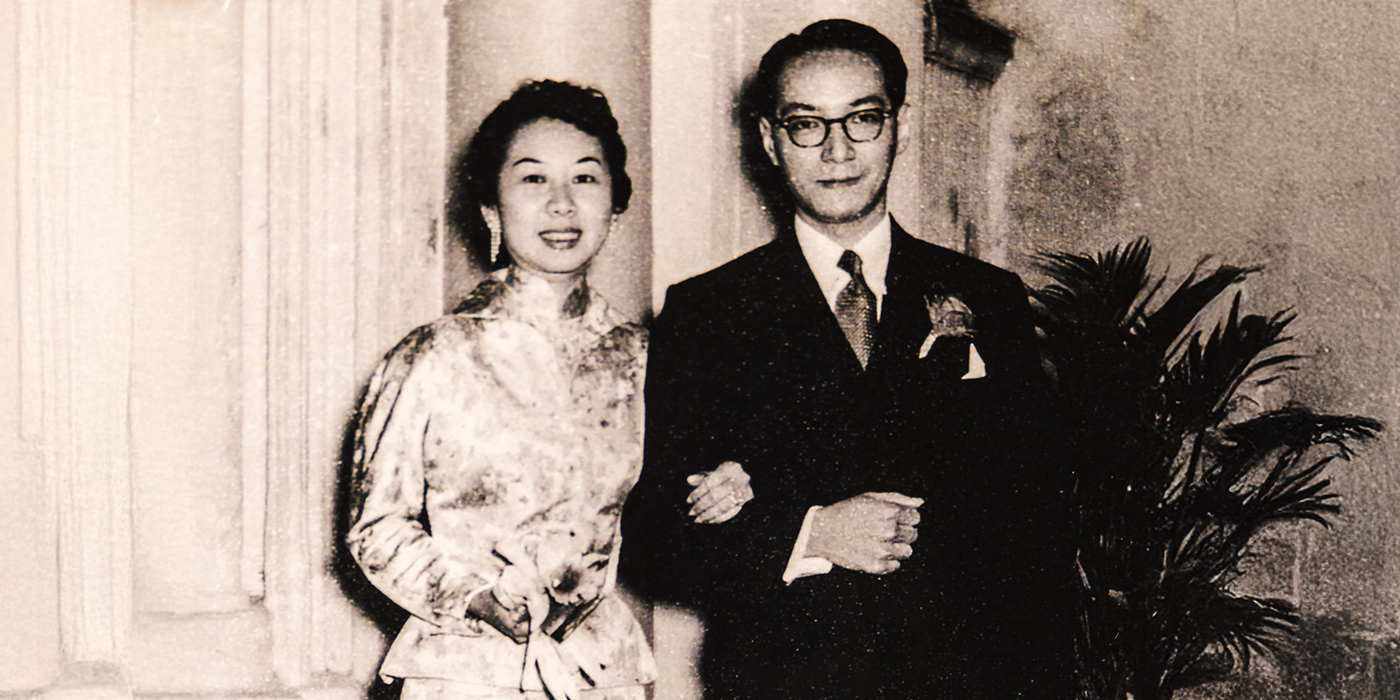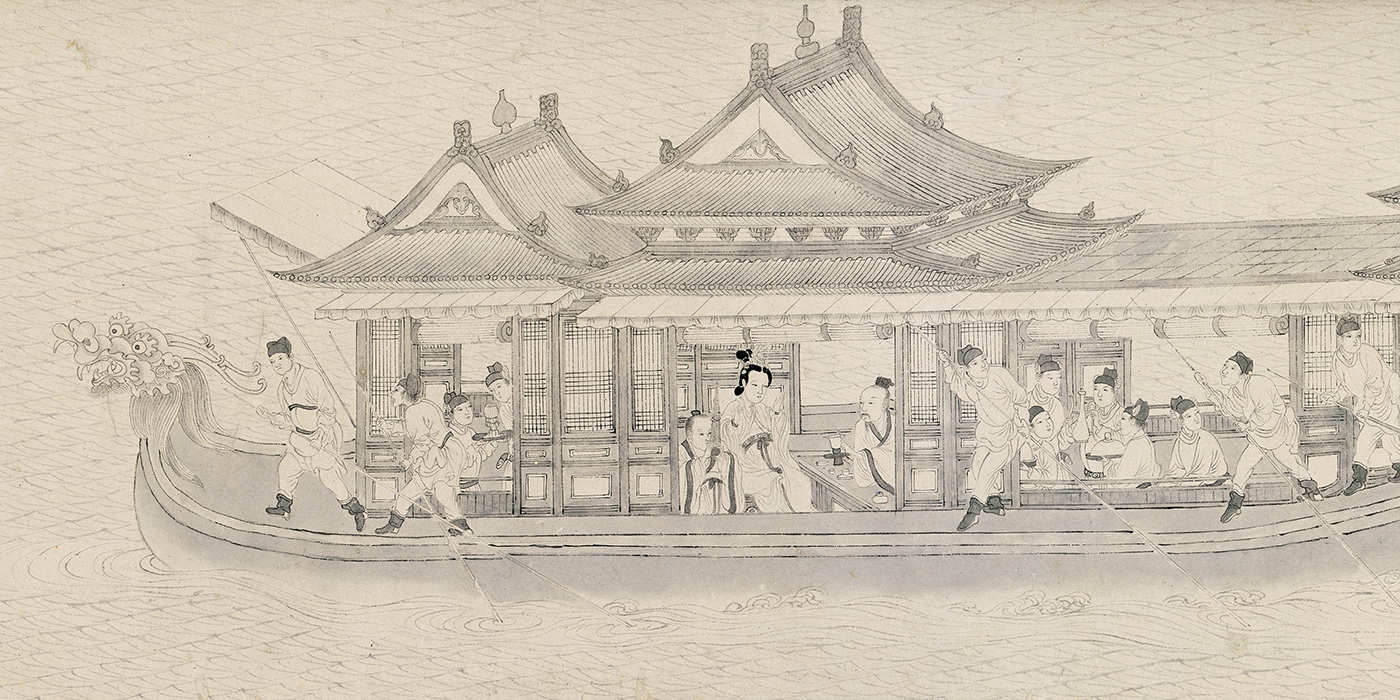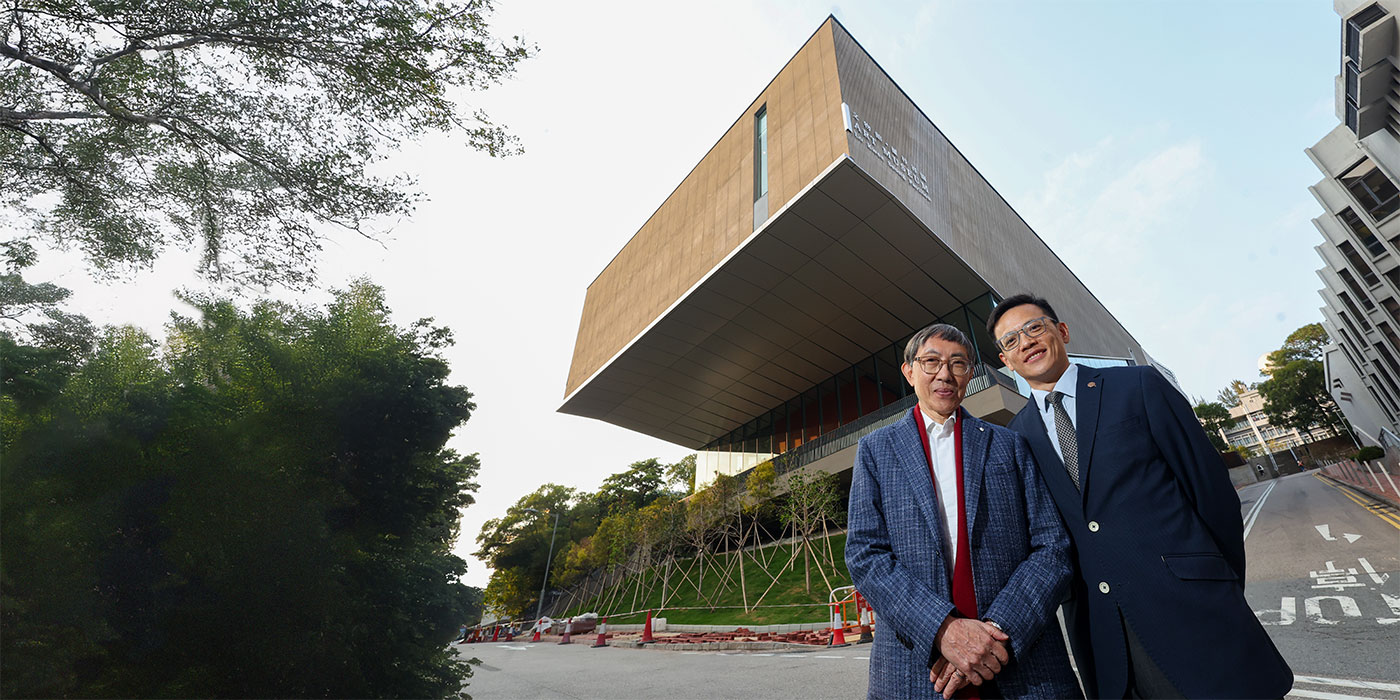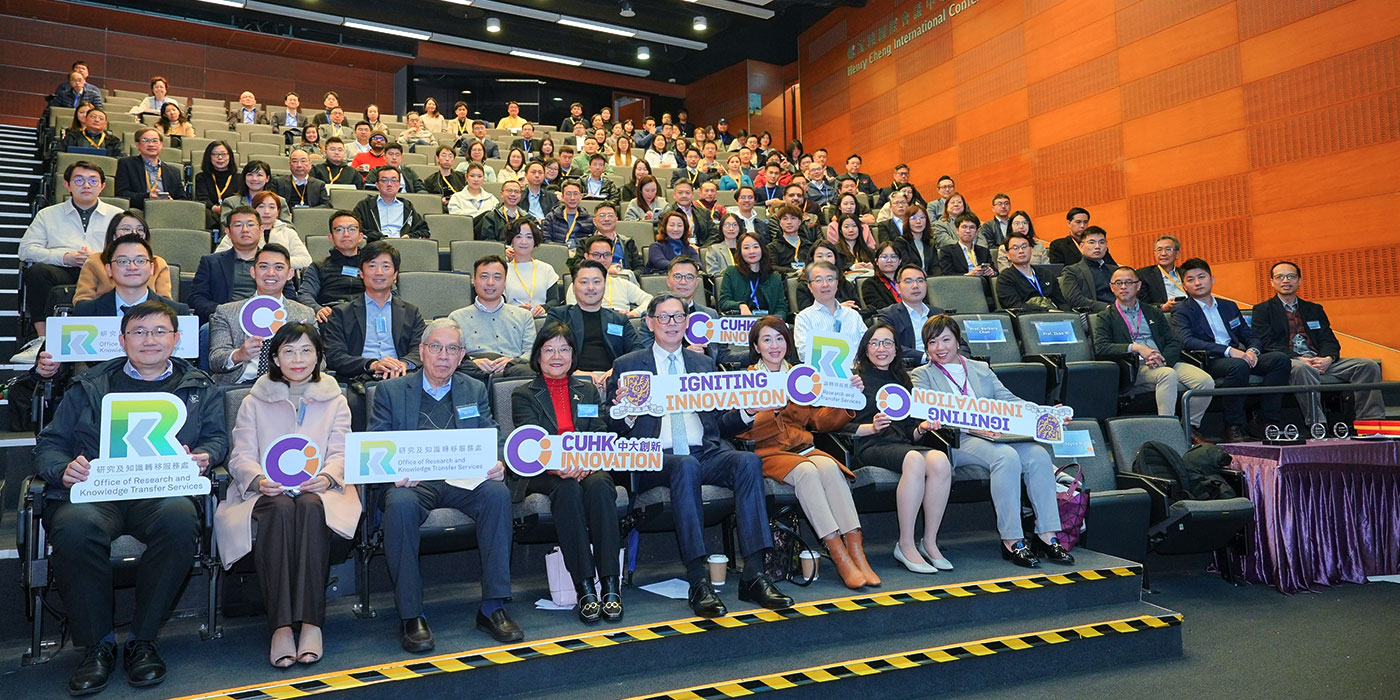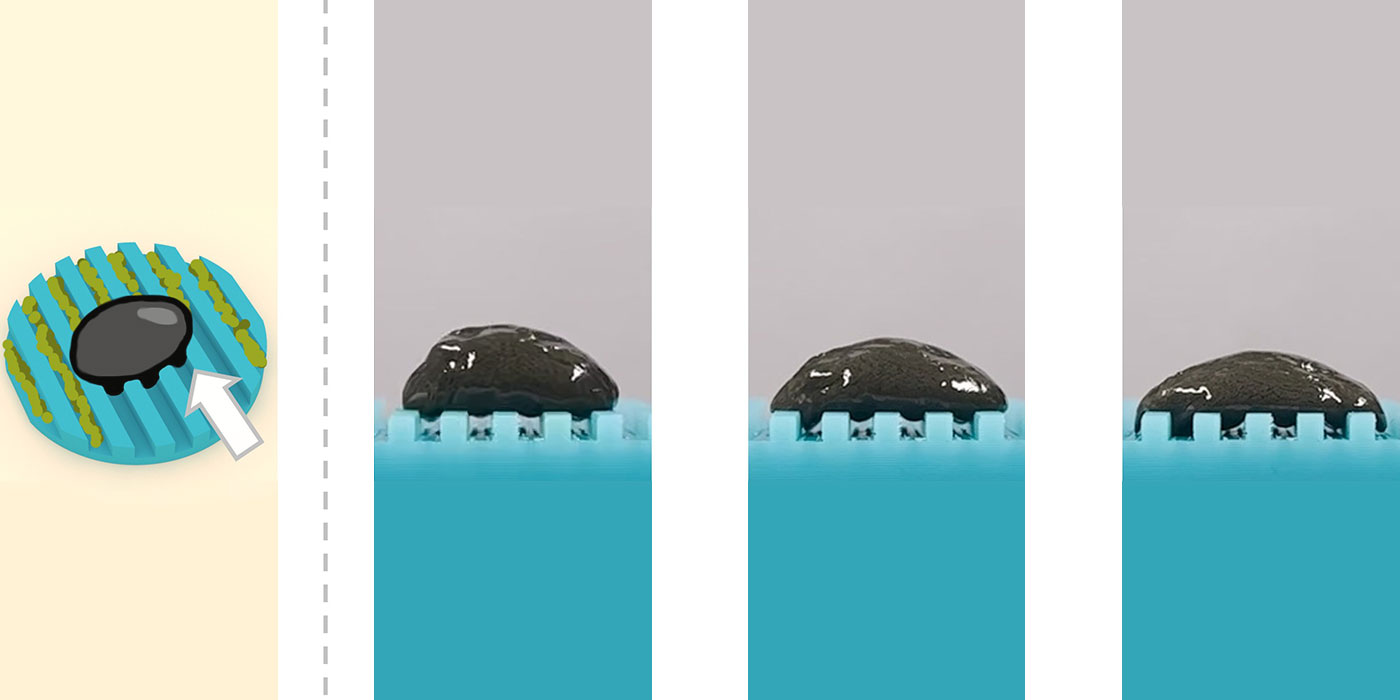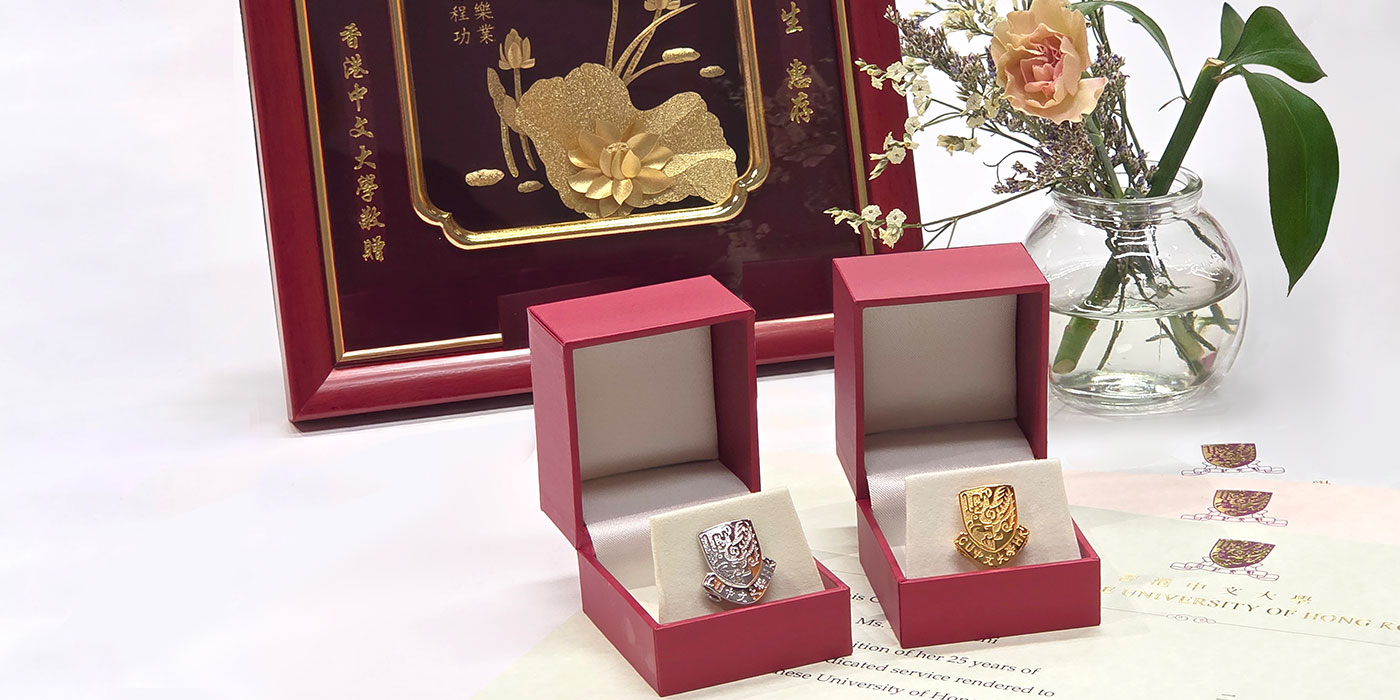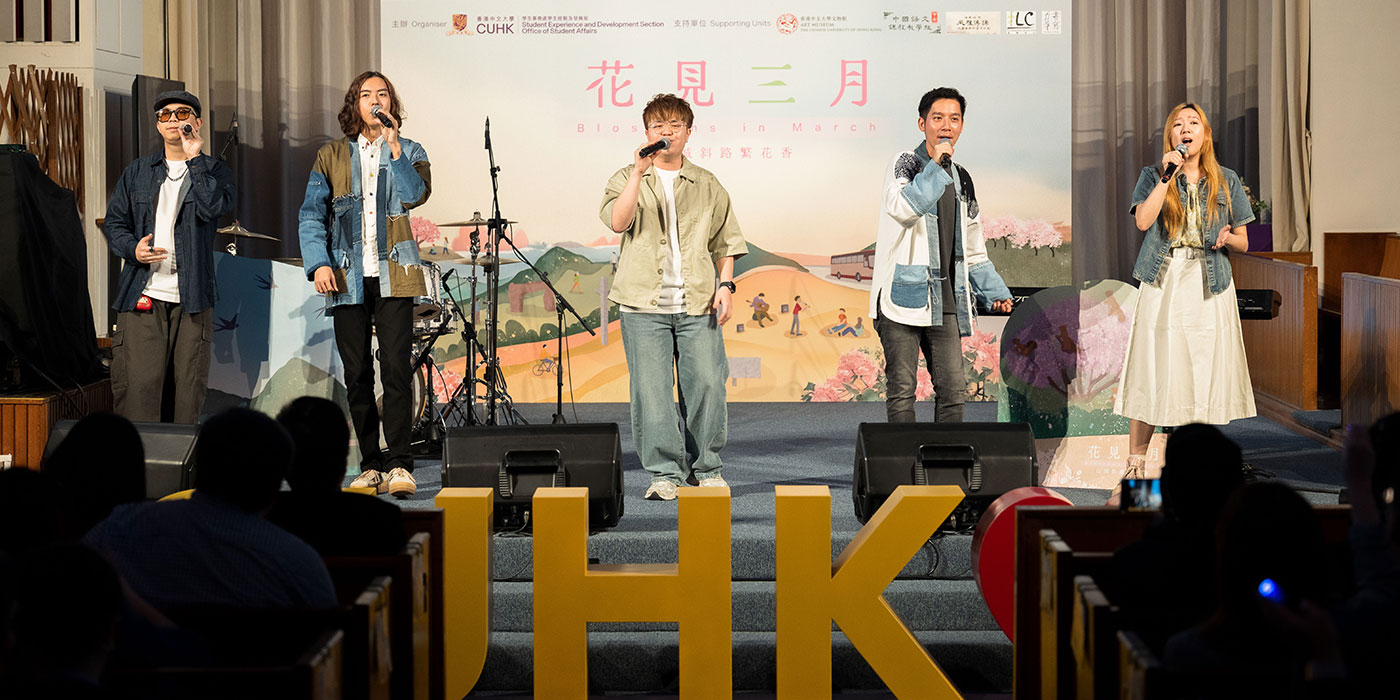Sustainability in college education
New Chung Chi College Head’s global vision for student experiences
Having researched environmental sustainability for more than two decades, Professor Kwan Mei-Po, newly appointed Head of Chung Chi College, is determined to integrate topics like climate change, environment and health into college education so that students can see the whole world and make changes in their own lives.
The internationally renowned geographer, who coordinates CUHK’s initiative on Environment and Sustainable Development, became the first female head of Chung Chi in August last year. She offers an example of how students can practice sustainability.
“A lot of students like online shopping, but items they purchase often arrive in elaborate packaging, and multiple orders from the same website are often shipped separately,” she observes. “Should we reduce the need for producing these packaging materials at the source? Are there effective ways to mitigate the waste problem? Students are the most creative, and I encourage them to come up with intelligent solutions.” To help move things in this direction, Professor Kwan has set up and resourced an in-house Environment and Sustainable Development Committee.
“Keeping our eyes open and looking at the whole world is not just about understanding the cultural differences across different places. Many major issues in the world, such as natural disasters, climate change, and income inequality, may seem far away, but they are actually close to us. For example, although climate change seems remote to us, the torrential rain (as one of the results of climate change) in Hong Kong last September that led to serious flooding of several MTR stations is very close to us. Chung Chi’s teachers are in a position to lead students to organise and take part in activities to deepen awareness of the United Nations Sustainable Development Goals.”
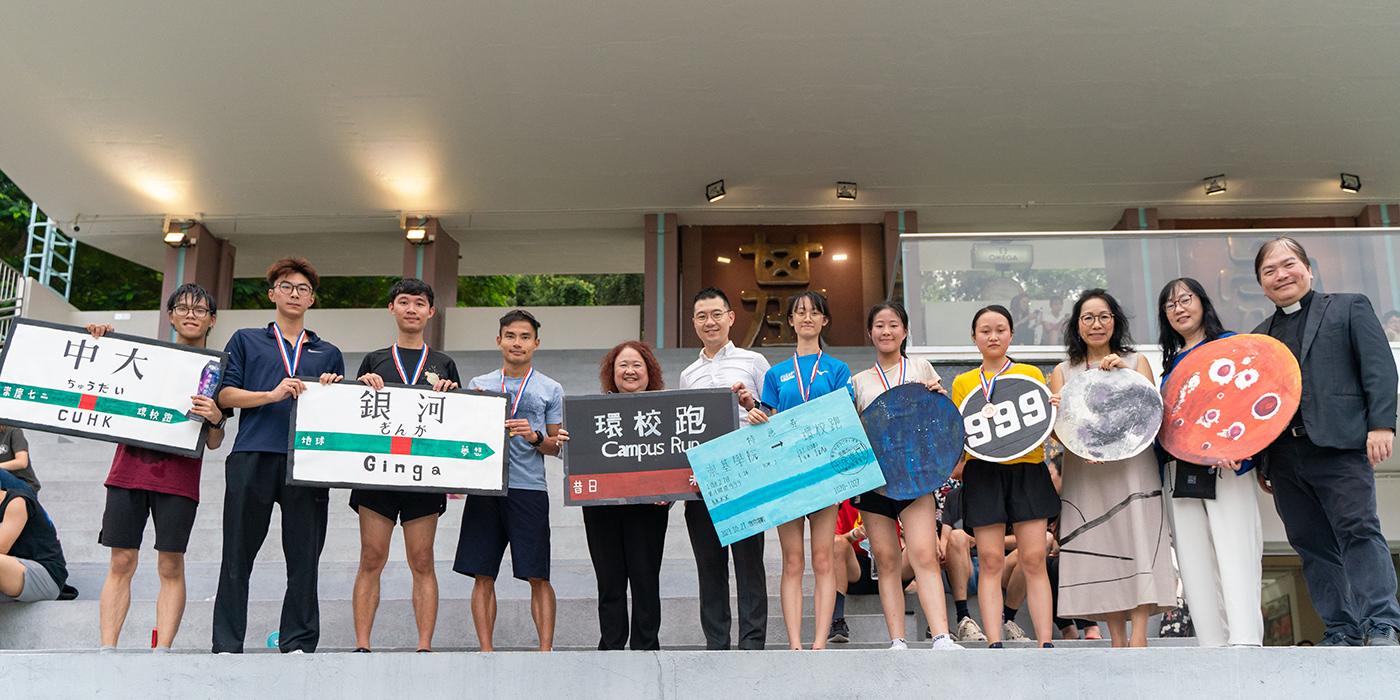
After taking office as Head of Chung Chi College, Kwan reorganised its Campus Environment Committee into the Environment and Sustainable Development Committee, in which the college will invest funds and resources to organise relevant activities. At the same time, the college will continue a series of service learning tours for its students, going to places such as Cambodia, Taitung in Taiwan and the Philippines. It will also organise urban study tours and cultural exchanges with Denmark, Singapore and the mainland city of Wuhan. In Shanghai, there will be internship opportunities.
Capturing individual experiences
Professor Kwan graduated from CUHK in 1985 as a geography major. She went on to obtain a master’s degree in urban planning from the University of California, Los Angeles, and a doctoral degree in geography from UC Santa Barbara. Returning to CUHK in 2019 after a fruitful research career in the United States spanning over two decades, Professor Kwan took up the post of Director of the Institute of Space and Earth Information Science (ISEIS). This was in addition to serving as coordinator for the University’s initiative on Environment and Sustainable Development. Currently, the main research activities of the ISEIS are the innovative use of satellite remote sensing and mobile sensing in disaster emergency response, infrastructure monitoring, pandemic prevention and control, the health impacts of environmental pollution, and smart transportation modeling.
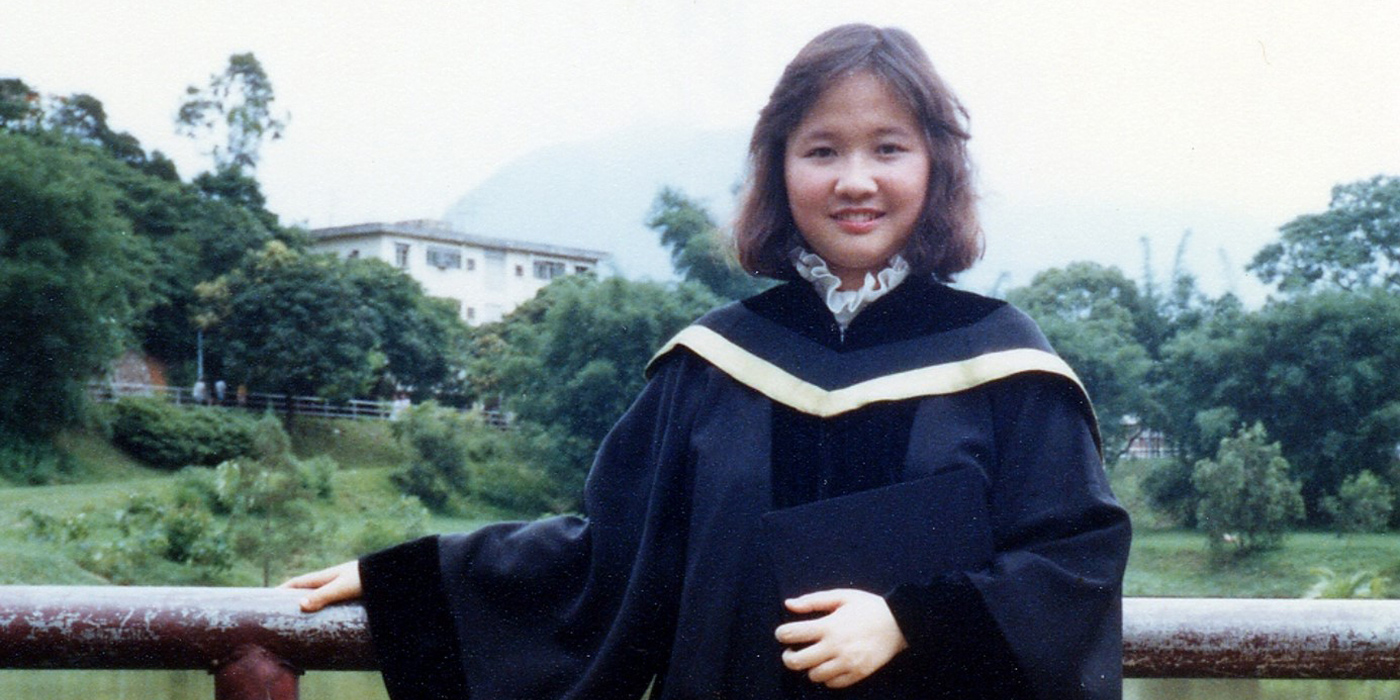
Professor Kwan has won numerous international awards in recognition of her transformative contributions to geography. In particular, she has broadened geographic information science to include humanistic dimensions such as perceptions, emotions and behaviour as core elements. She is also dedicated to finding innovative ways to assess people’s environmental exposure and its impact on their health, with an emphasis on capturing individual experiences.
For one major project she co-led in the US in the early 2010s while teaching at the Ohio State University, Professor Kwan ventured to Tijuana, a Mexican border city plagued by violence of drug cartels and the sex trade, to investigate the health risks of female sex workers. She used geo-narrative methods to analyse data collected through in-depth interviews to understand how they became addicted to drugs, used unclean syringes to take drugs, and contracted AIDS. She was able to identify HIV concentration hotspots using geographic information system (GIS) methods, providing scientific evidence for informing health interventions by the authorities.
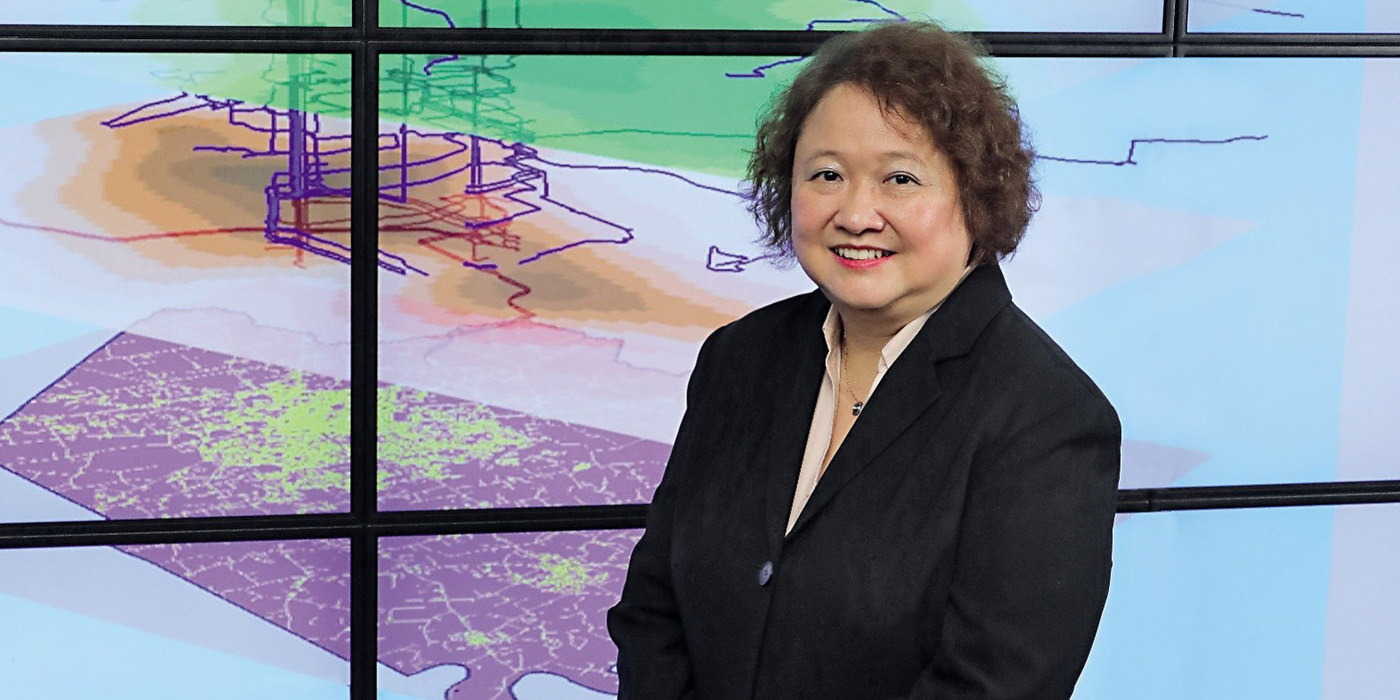
Deriving strength from challenges
“I am able to transcend the boundaries between different disciplines,” says the professor. “Why? Because I have a lot of experience in different disciplines, such as science, social sciences, and arts and humanities. So, I can integrate the perspectives from many different disciplines.”
Professor Kwan explains that in those days there were few female professors from Asia at US universities. “As a woman of colour, I was doubly disadvantaged. But I worked hard, overcame difficulties, and became the strong scholar I am now. Those experiences made me even better at bringing humanities issues into geographic information science,” she says.
Professor Kwan hopes to achieve greater cultural integration on campus, especially among local and mainland students. “This is also a consensus in the Chung Chi’s Board of Trustees. I feel that there are many unnecessary disagreements in society, and there are also some estrangement between local students and mainland students. I hope to organise some cultural integration activities to bring them together and help them learn from each other’s different strengths.” She will continue to carry forward the Chung Chi apothegm, “Academics and Athletics, Morality and Service, and Spiritual Enhancement”, and at the same time hopes to cultivate students’ perspectives as global citizens.
To maximise her time, Kwan sleeps just four hours a night, a regimen she has kept since starting her teaching career. She wakes up at 3am, finding the peaceful wee hours the best time for thinking. To relax, she watches an entire Korean television drama series in one go (her favourites include Crash Landing on You and Love in the Moonlight). “You find kindness and beauty in the human spirit in Korean dramas, in relationships, family and friendships. I don’t like Hong Kong TV dramas which are often about rivalry and revenge.”
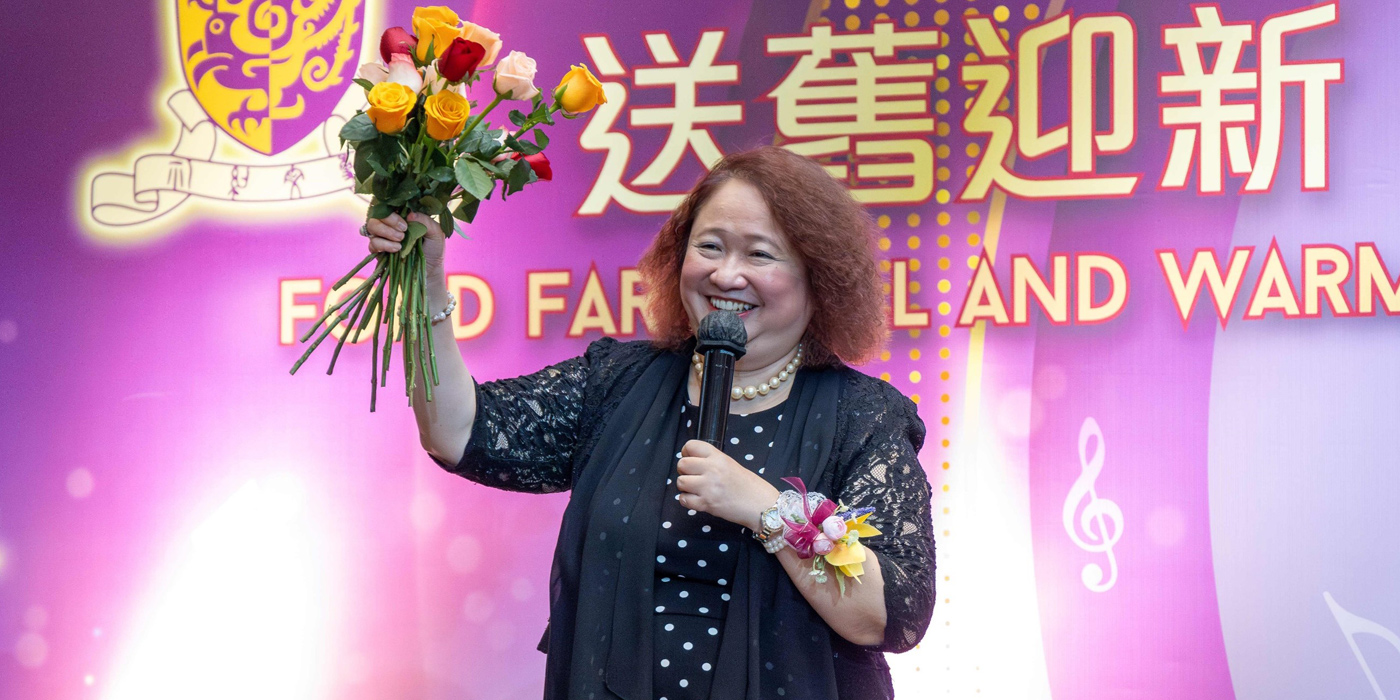
The college is steering “Project E”, which involves redeveloping staff quarters near the MTR entrance to CUHK into two buildings to be used as staff and student accommodation, an activity centre for alumni and a digital culture and art creativity centre by 2027.
HK$31 million has already been raised and the architectural design has recently been confirmed. Professor Kwan says the college will work hard to raise the rest of the HK$180 million needed to complete the project. “We will have a piazza to connect the University’s entrance to the new buildings, and that space will welcome not just Chung Chi students, but all CUHK members and become a new hub of the University.”
By Joyce Ng
Photos: main photo by LCT; others by courtesy of Professor Kwan

